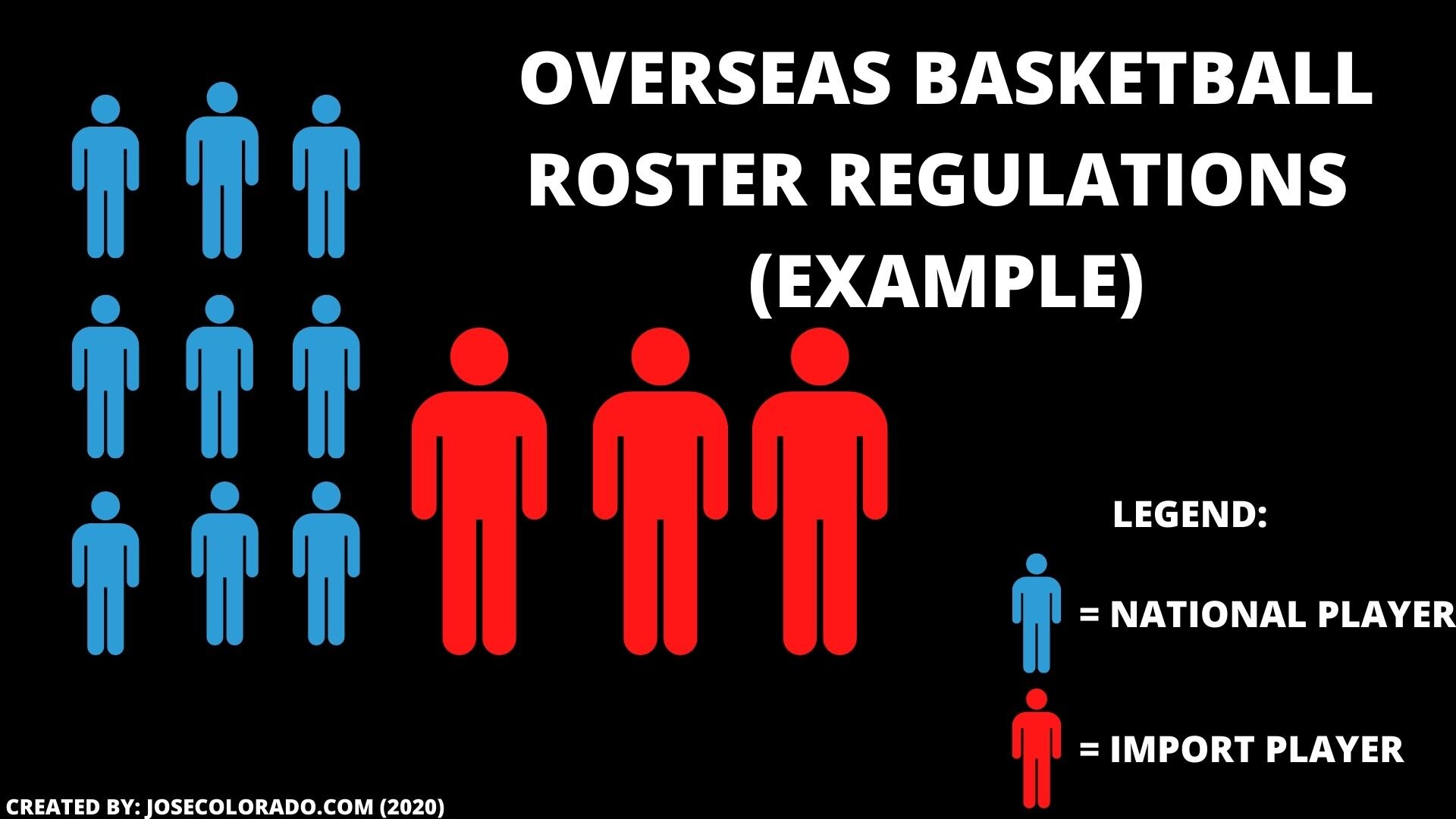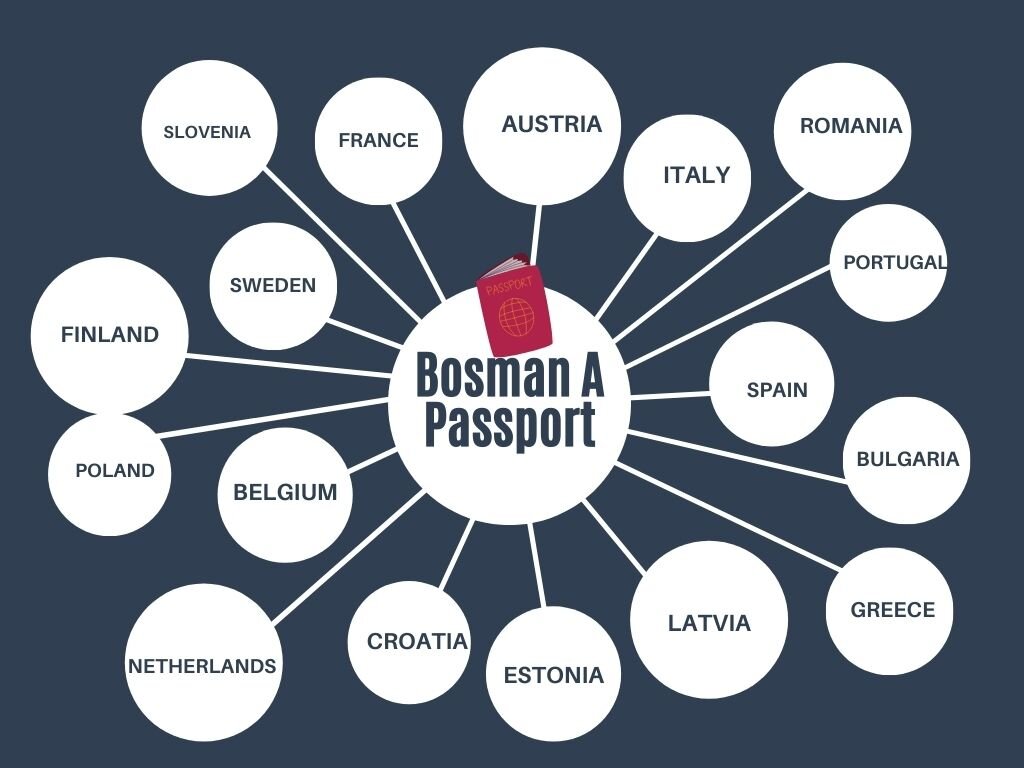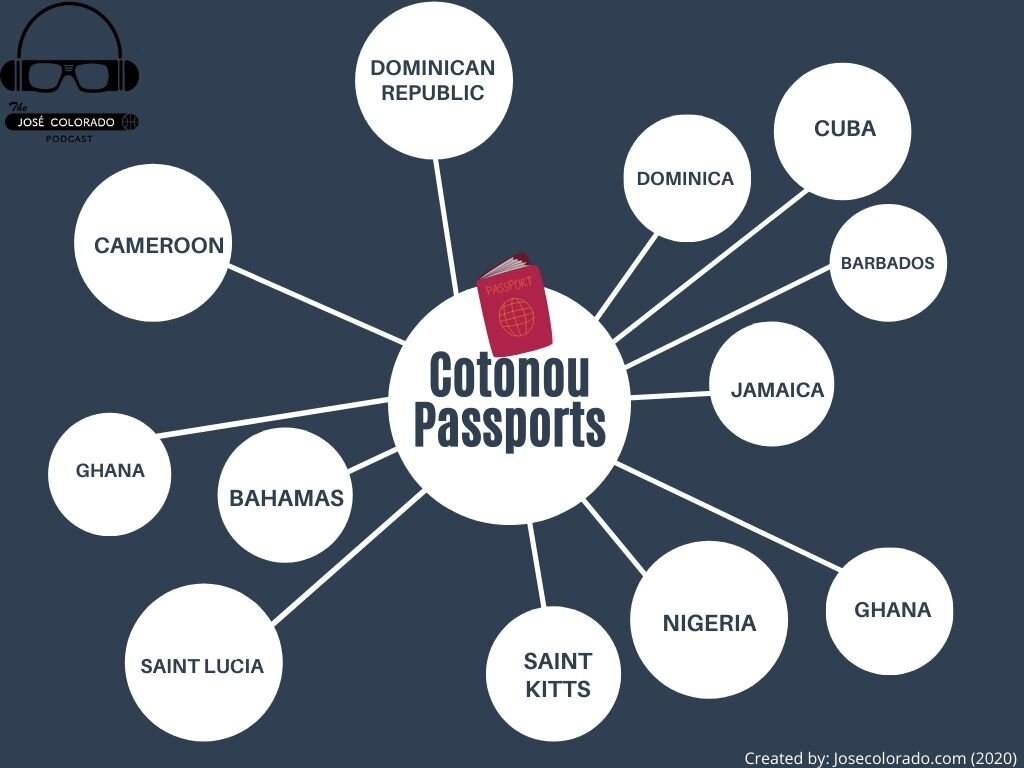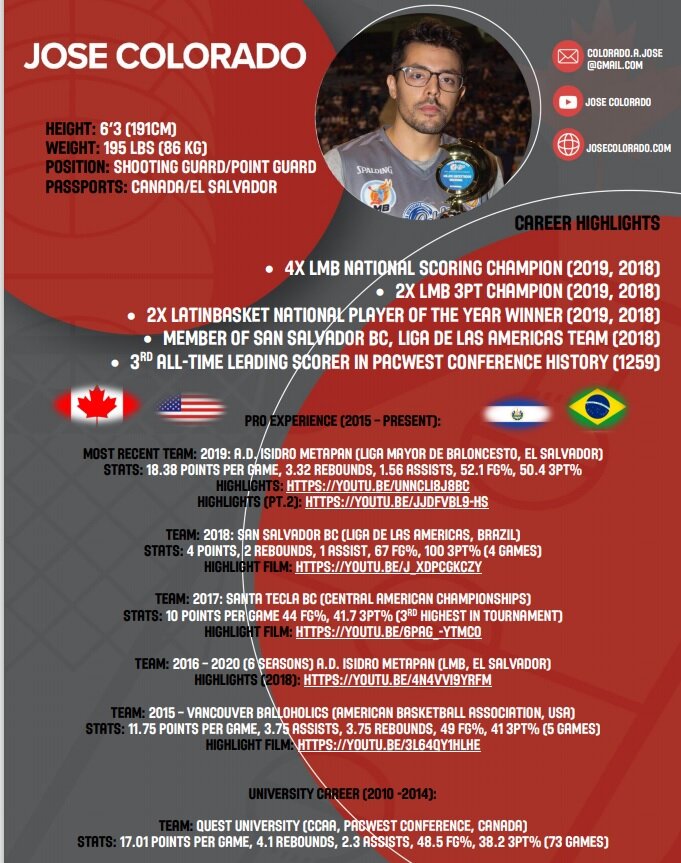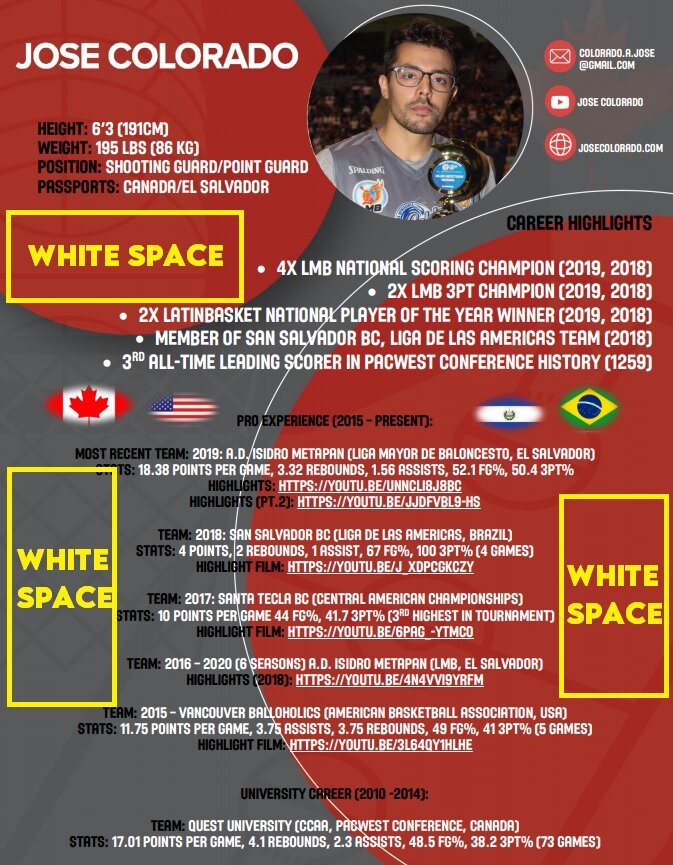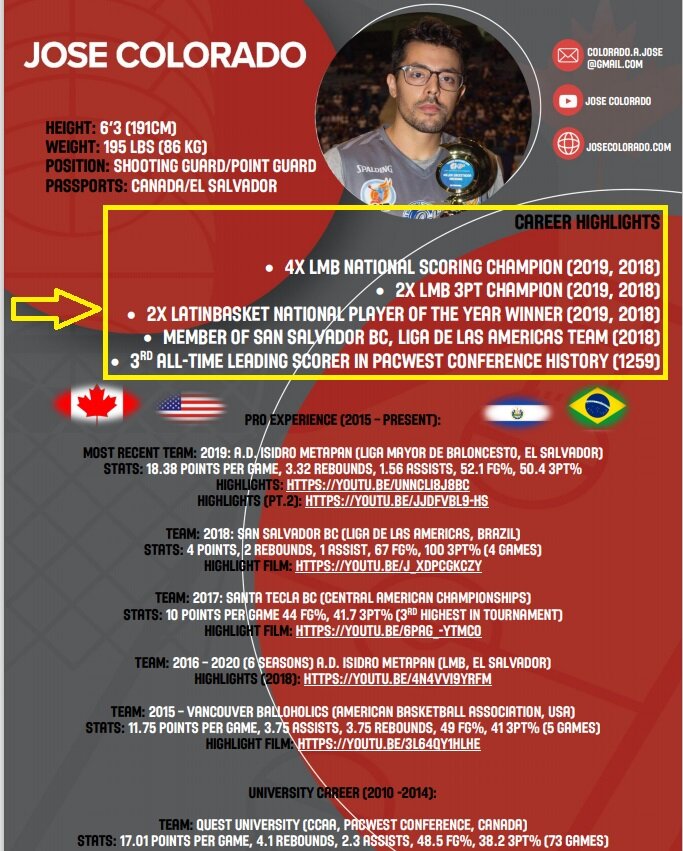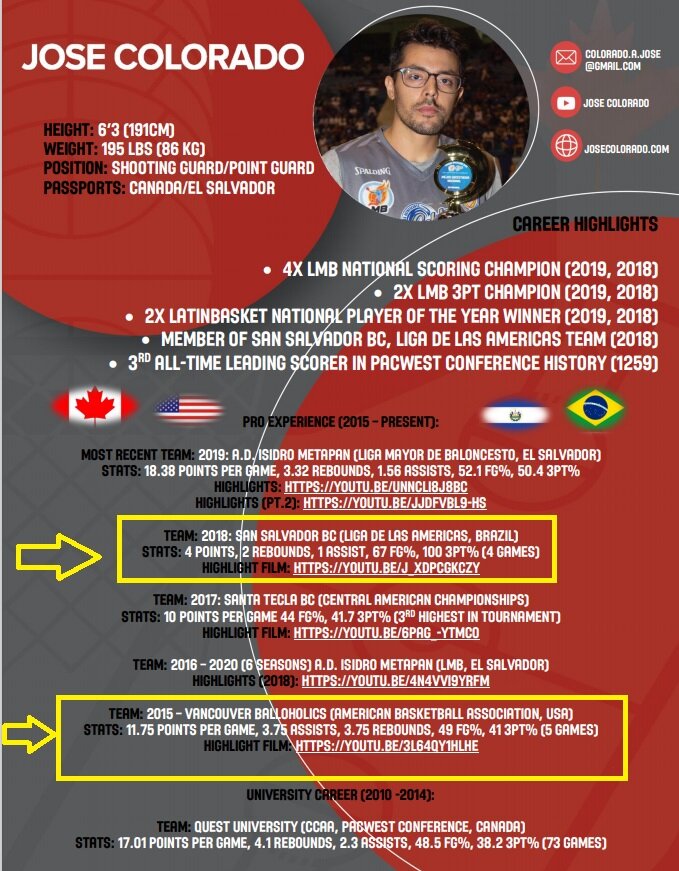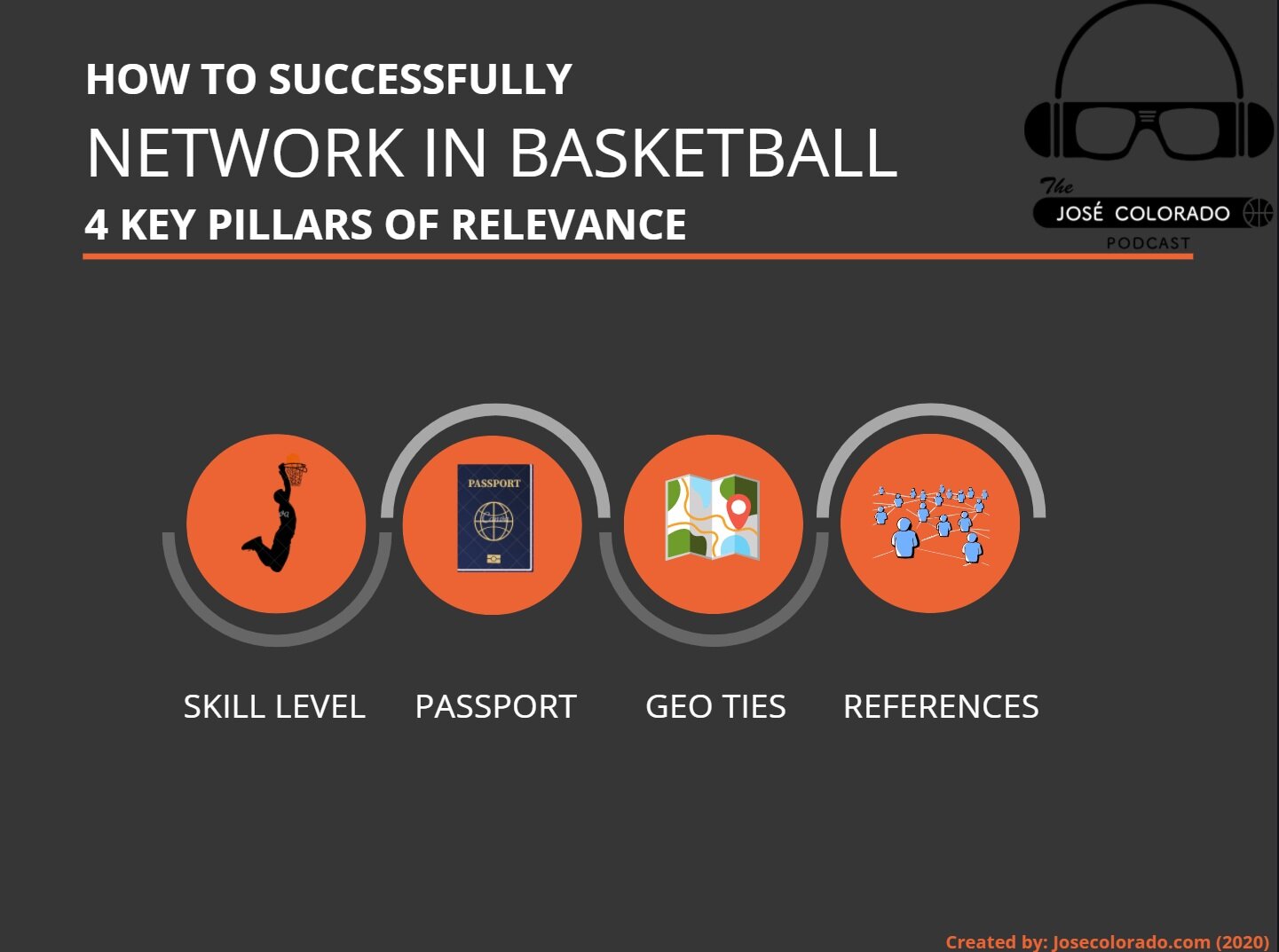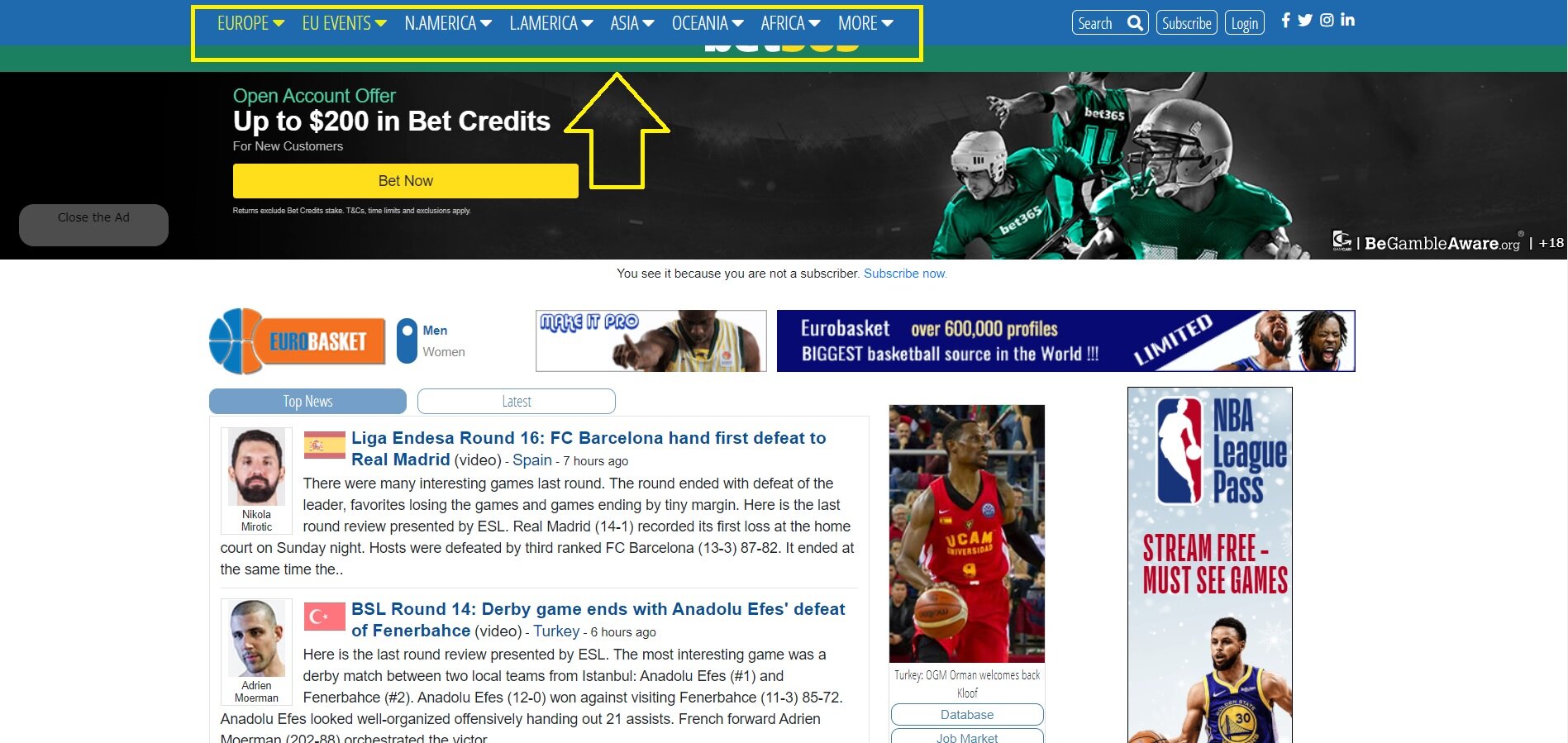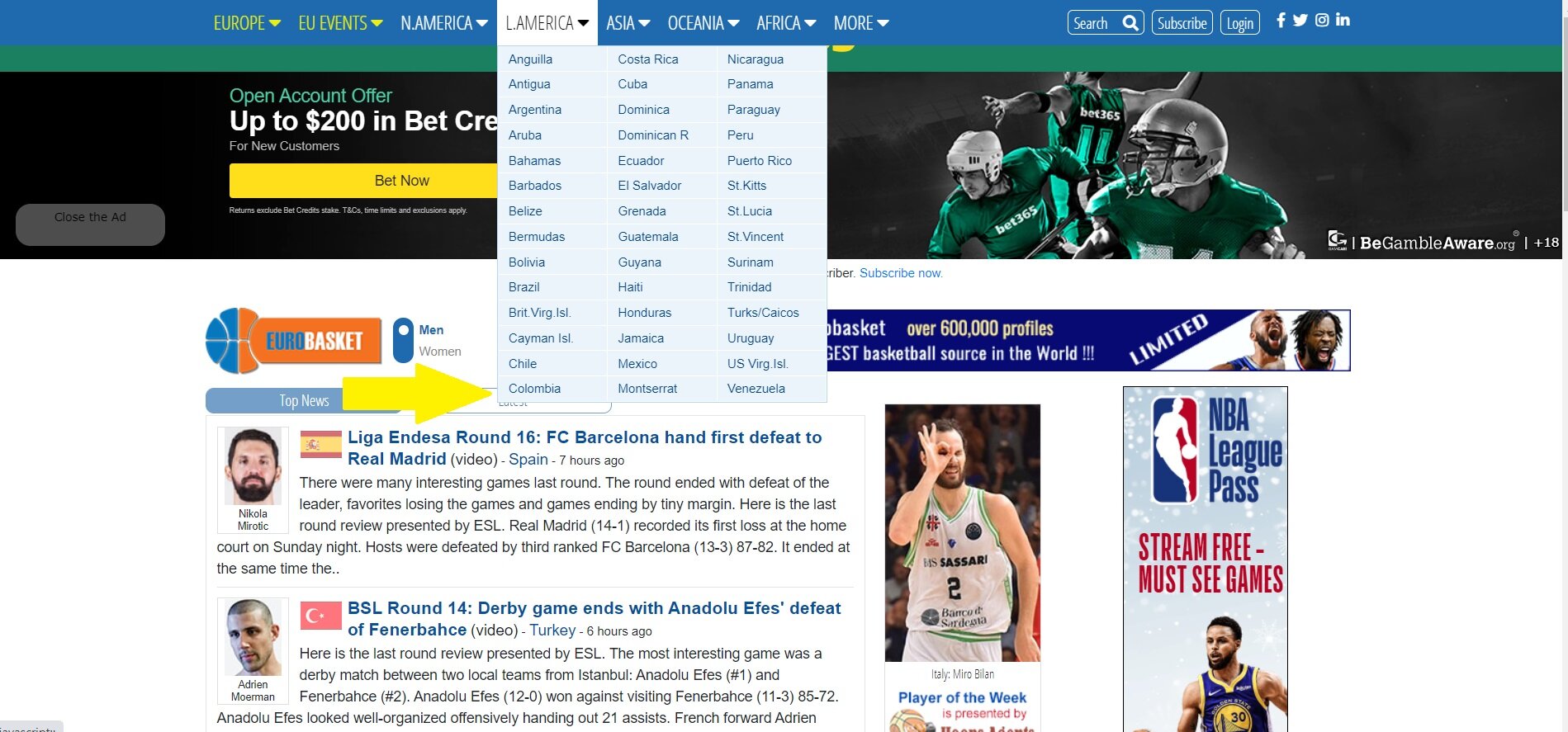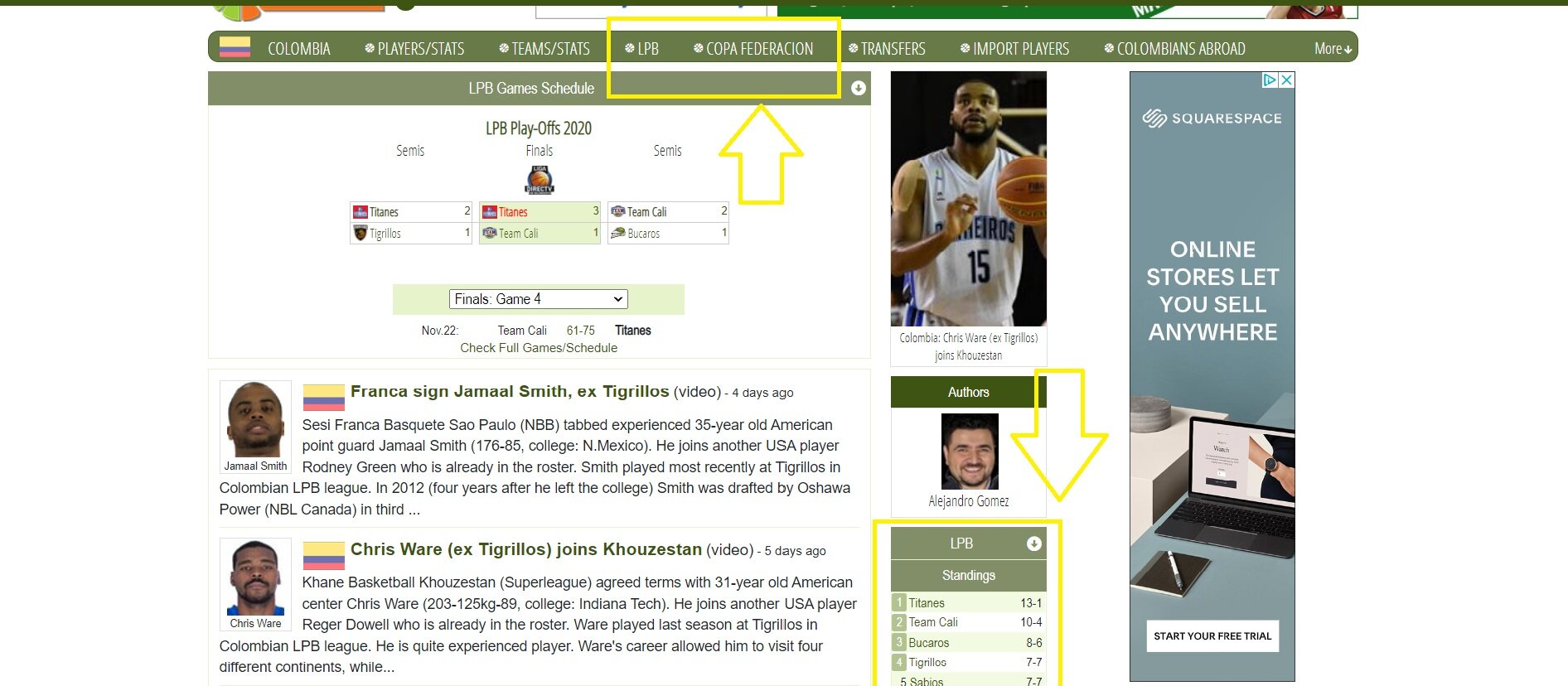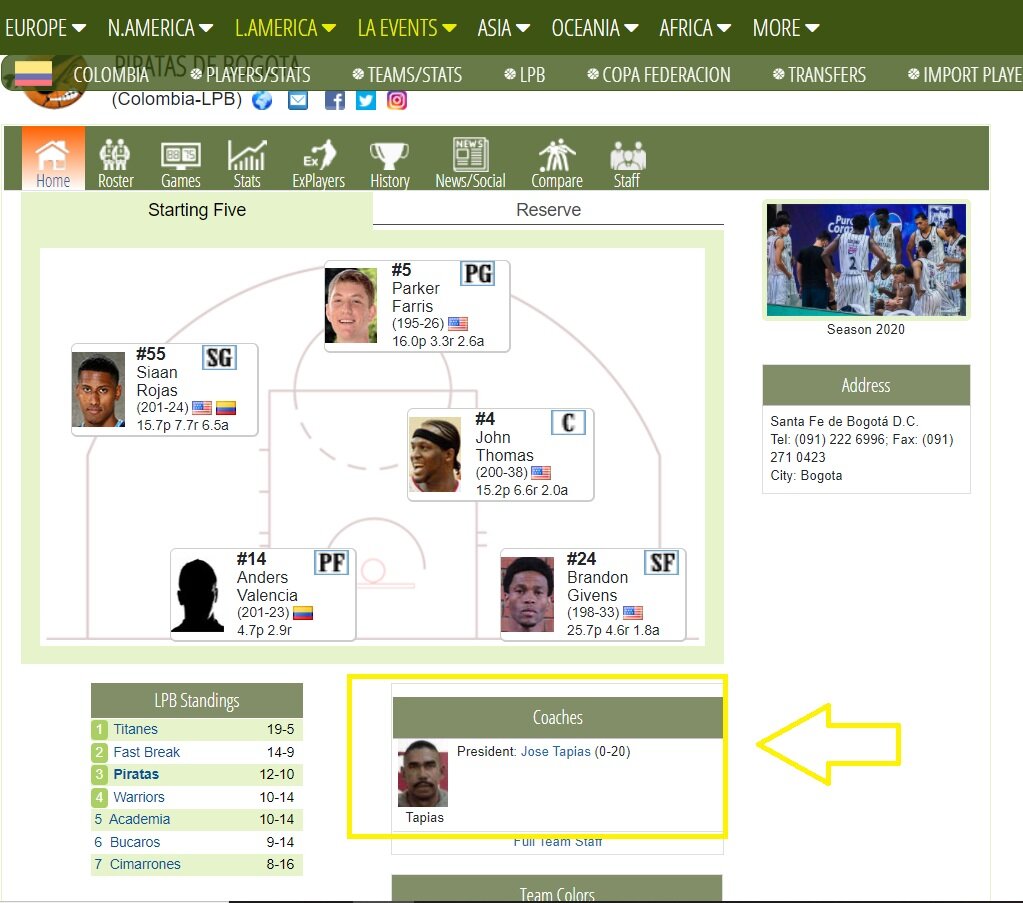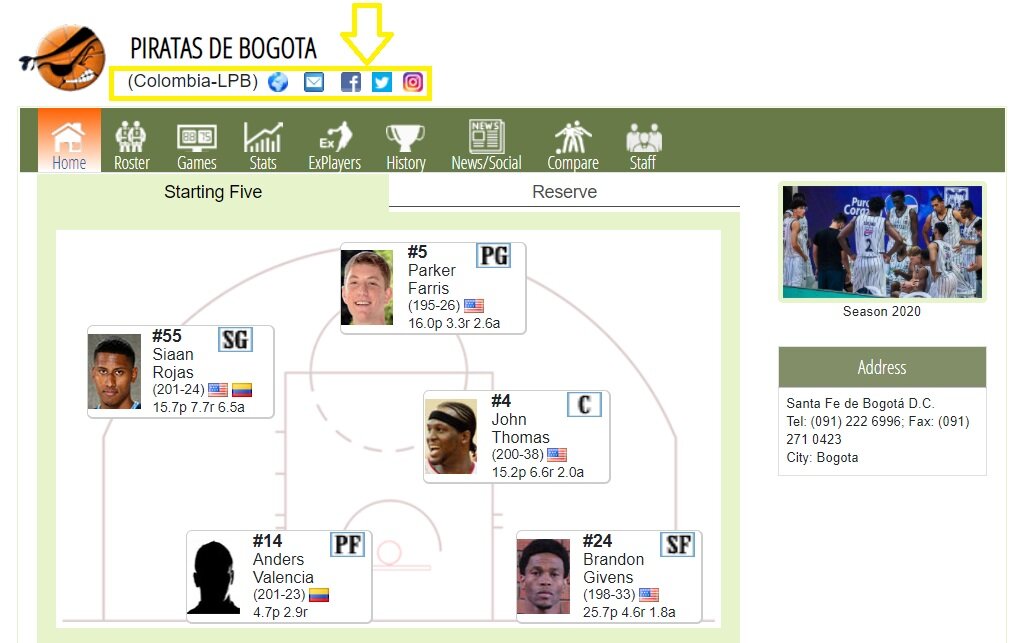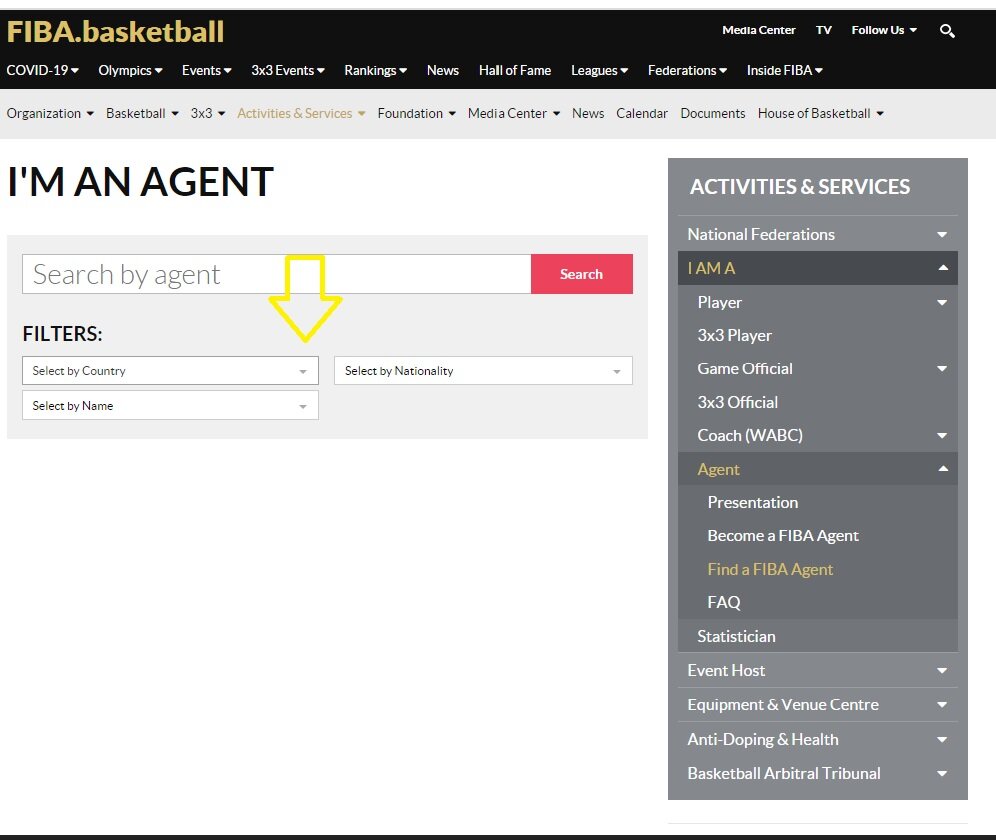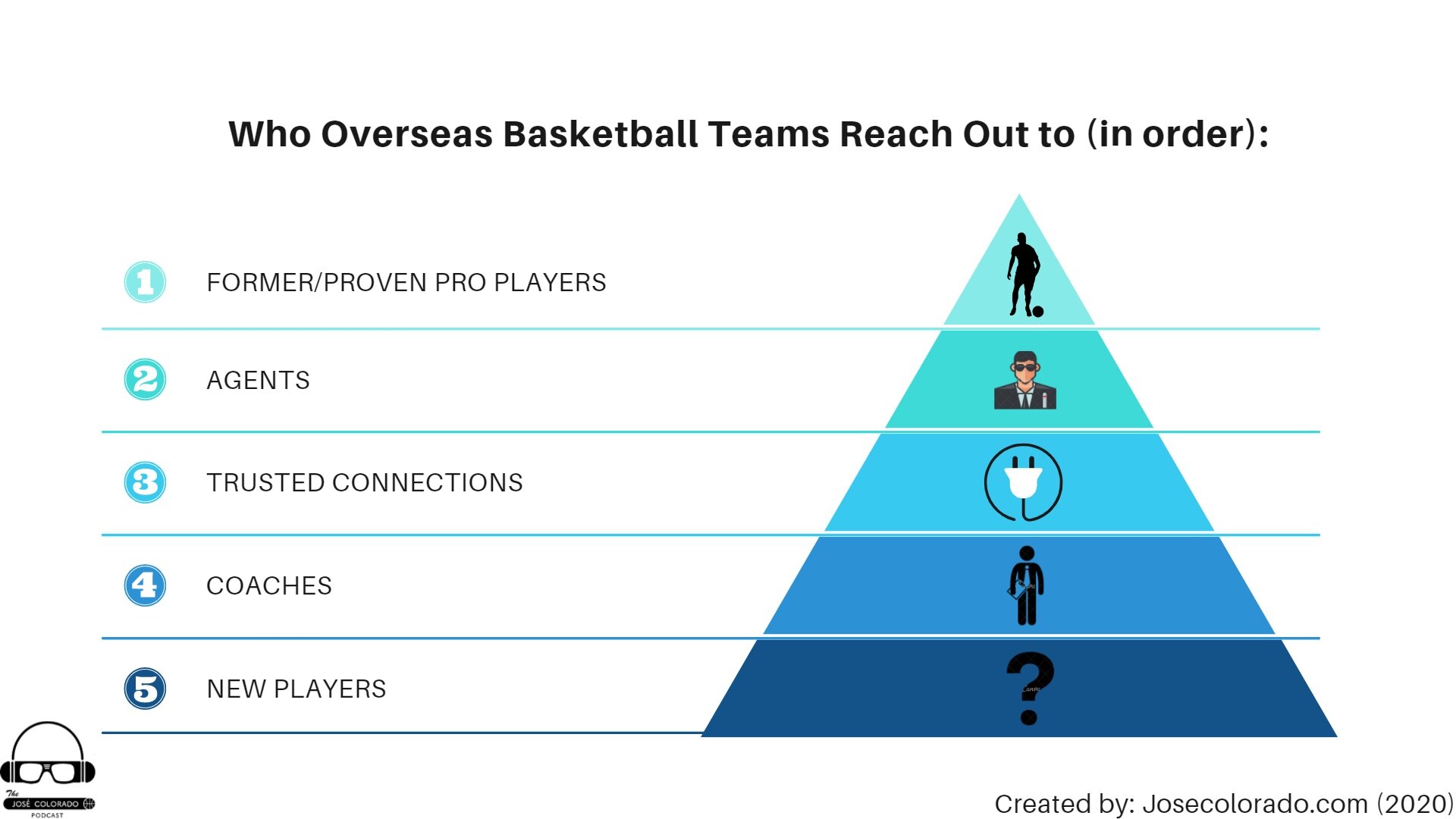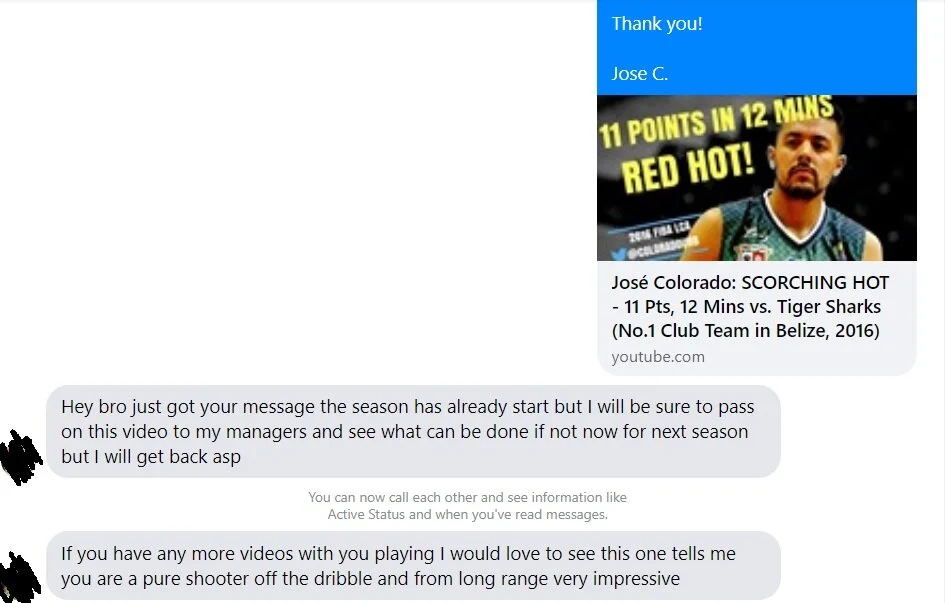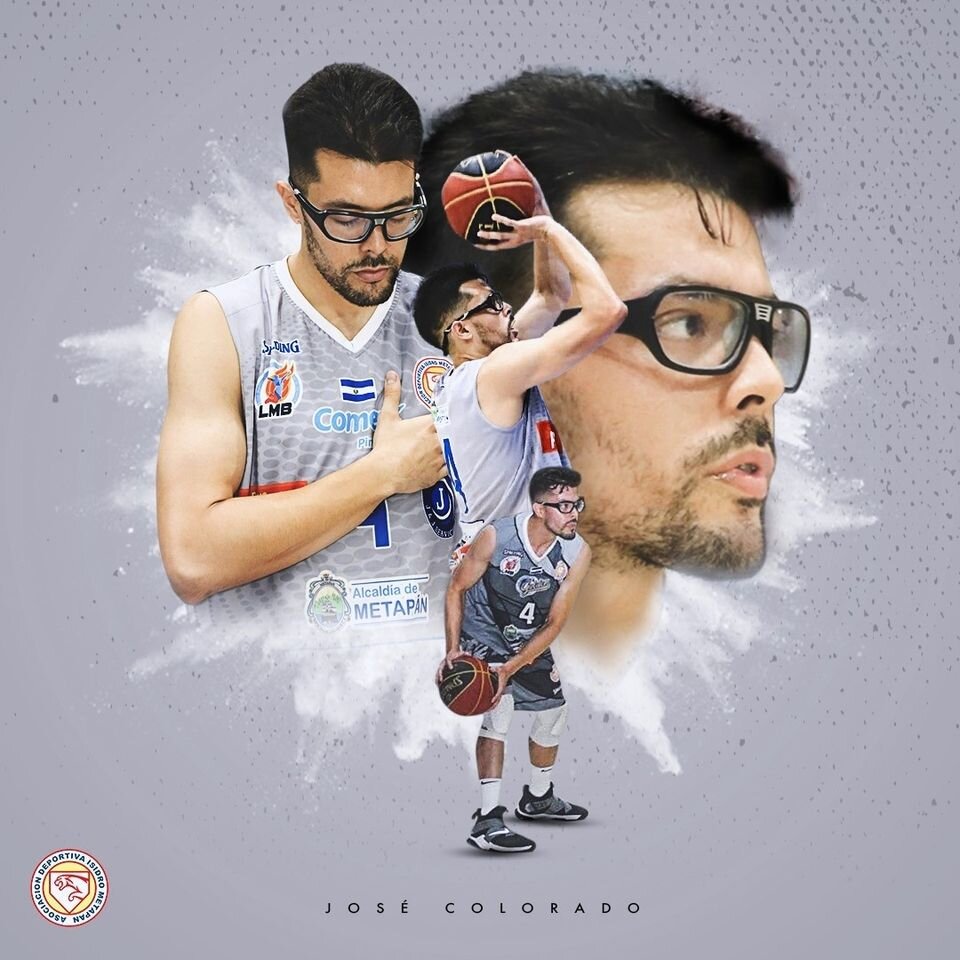How To Play Basketball Overseas [ULTIMATE GUIDE]
After 5 years and nearly 300 professional overseas basketball games, I’ve seen plenty of overseas players come and go.
But regardless of:
Background
Skill set
Age
Playing experience
…each player got their chance in professional basketball through one variation or another of what I am about to show you.
With this guide I’ve helped over 50 players (and counting) realize their dreams of professional basketball.
So read on if you want to learn the proven way of how to play basketball overseas with the ULTIMATE step-by-step guide.
Let’s begin.
SECTIONS
overseas basketball requirements/qualifications
Before you:
Contact professional clubs, coaches, managers, agents etc.
Make a highlight film
Attend an exposure camp
Or do anything else related to your overseas basketball career
…stop and ask yourself 2 questions:
WHAT PASSPORT DO I HAVE?
AM I ELIGIBLE FOR ANOTHER?
Having multiple citizenships/passports may be the single greatest factor in getting started in professional basketball because it greatly increases your playing options while decreasing the pressure and competitiveness in overseas basketball.
I cannot stress this enough.
Besides your skill level (I’m assuming you have GAME), this is the single most important factor in making it in overseas basketball or not.
So let me explain a bit more in-depth.
As outlined in my comprehensive post about basketball passports across the world, every FIBA-sanctioned roster in the world is made up of essentially two different types of players.
Nationals
Imports
Nationals are those players WHO HAVE citizenship/passport within the country in which the league is taking place.
Imports are those WHO DO NOT HAVE citizenship/passport within the country in which the league is taking place.
For instance:
If the league is taking place in Brazil and I am Canadian, I must play as an import since I do not have a Brazilian passport.
But if I had a Brazilian passport then I would be considered a national in Brazil.
The same applies if I wanted to play in Argentina, Vietnam, Australia or wherever else outside of Canada.
Regardless of the country, if I do not have the citizenship/passport of the country in which the league is taking place, then I will be counted as an import.
Pretty simple.
But why is this important?
Every roster in overseas basketball will be made up of primarily nationals.
Only a few spots are reserved for imports.
That could be 1 spot for imports.
It could 2, 3, 4…or whatever.
It depends on the country and region.
The point is:
In overseas basketball, teams don’t pick the 12 best players money can. Instead, pro teams pick the 12 best players money can buy under the import-national roster regulations in their region/country. This is a huge difference.
Essentially:
If you don’t have a “home league” (meaning a country where you can play as a national) then you will always be competing for import spots.
And regardless of where you are or how good you think you are, playing as only an import will be extremely competitive and difficult to sustain both physically and financially.
Imports have:
Higher performance demands
Shorter leashes
Tougher barrier of entry (i.e. they usually want NCAA or higher-experienced guys)
That isn’t to say players can’t do it.
I’ve seen plenty of players (usually Americans) have long overseas careers playing purely as an import.
But they are the exception. Not the rule.
So you have to stack the odds in your favor by attempting to become a national (i.e. getting another passport) in as many countries as possible.
This will make you EXTREMELY valuable to clubs, agents, teams and managers no matter the country because:
(A.) There’s a greater mathematically chance of you getting a job (more roster spots)
(B.) Many countries have weak national players, making you an even greater commodity (although obviously this will depend on the country).
There are a few ways you could be eligible for a second passport:
Bloodline through family (parents, grandparents, great-grandparents - known as jus sanguinis)
Being born in a different country (known as jus soli)
Marriage
Investment
Significant country contributions (governments can naturalize you if you’re deemed important enough)
Let’s look at a few examples to illustrate just how powerful multiple passports can be:
BOSMAN A PASSPORT in OVERSEAS BASKETBALL
In European basketball there is an agreement that allows all European Union passport holders to play as a national across the European Union.
This is known as a Bosman A passport within the basketball world.
That means:
In each of the following countries you can crossover and play as a national.
So if you are Italian you can play as a national in:
Spain
Bulgaria
Romania
….any country listed in the EU
Just think about that for a second:
You now have 20+ countries to play as a national
You now have way more roster spots open to you (European countries have multiple divisions)
You now have less pressure to perform (less expectations than imports)
You now have a much greater chance of landing a job
The Bosman A is likely the most famous basketball passport because of its incredible mobility but there are others, including:
Bosman B citizens/players have designated roster spots reserved for them in many European countries.
Cotonou Passport: African & Caribbean passports that grant access to certain European countries as nationals.
ASIAN PASSPORT: Some Asian countries permit an “Asian import” born outside the country, alongside “normal imports”
Examples:
Jordan
Japan
Philippines
China
Lebanon
Many passports only grant national playing status in its specific country.
For example:
An El Salvador passport only grants national status in El Salvador.
Get it anyway.
Counting as a national in one country is better than counting as a national in no countries.
It still gives you more options and a much greater chance to get your foot in the door.
I think you get the idea at this point:
Research your family tree dating back to your great grandparents (yes, that far back can still work)
Visit your local embassy in-person and ask questions
Google [COUNTRY NAME] + nationality law
Agents, clubs, coaches and managers always look for and work with specific players with passports.
So get on this ASAP if you are serious about getting started in overseas basketball.
It will completely change your career.
how to make a highlight video for overseas basketball
After having explored your right to dual nationality, it’s time to begin collecting, editing and producing a highlight video.
Highlight videos are a series of a player’s best plays and accomplishments from a season, game, career - or all the above - in order for coaches and teams to evaluate a player’s athleticism, size, skill set, competition level, movement patterns and overall ability.
It is one of the fastest and easiest ways for overseas pro clubs to evaluate talent so it is an critical part of the equation if you are looking to play overseas.
After having made tens of highlight videos for players throughout the world, I’ve learned one simple truth:
Highlight videos are yours to screw up.
Keep it simple
Keep it basic
Use common sense
….and you’ll be fine.
If you don’t feel like editing your own film (very time consuming and there can be a learning curve) then you can easily find someone online.
But if you want complete control over your video then:
Here are 13 KEY pointers for basketball highlight films:
Use film from games, not practices or workouts
Open the highlight film with your Play of the Year
Show a few close-ups of you at the beginning
Show off your best play(s) - regardless of what skill it is - at the start
After the opening minute of your best plays, organize highlight film by skill
Include all skills
Make the edits and play sequences short and snappy (2-4 secs per play)
Keep the highlight film to 3-5 minutes
Avoid slowing down highlights with arrow or circle highlighter if possible
ZERO swearing or lyrics for music (simple beat is fine or no music)
Always use YouTube to host highlight film
Include contact information and call to action in description
Use an engaging title
If you’d like to go over each point and fully understand the process then click on my in-depth review on How to Make a Basketball Highlight Video.
If not, remember the MAJOR take-aways:
USE GAME FILM; NOT PRACTICE OR WORKOUT FOOTAGE
This should be a given but too often I don’t see it.
Whenever you can, use film from actual competitive games.
Make sure the camera is at a decent angle (not ground level) where you can actually tell who is who and see the entire court.
The game film must come from a formal and organized competitive setting.
Some examples include:
College/university game
Exposure camp footage
Semi-pro games
Pro tour games
National team tournaments
High-level tournaments (e.g. Drew League, TBT, FIBA 3x3 etc.)
Understand something:
Coaches want to see highlight films of you playing against other people because then they can assess:
Level of competition (the better the competition, the more credible)
Environment
Athleticism
Movement patterns
…etc.
And they can’t do that if they can’t even even see the court or who you’re up against.
If you only have PRO AM footage - it’s unlikely coaches will take it seriously (no defense).
If your only option is men’s league or something like what’s below, then it’s time to invest into a formal exposure camp or combine to get better footage/competition.
OPEN THE HIGHLIGHT FILM WITH YOUR BEST PLAYS; DON’T WASTE TIME
Once you have your film ready, coaches and clubs don’t have time to wait for your best stuff. If you’re lucky a coach may watch 1 minute.
So get to the point.
If you tomahawked over 2 guys in the lane - put that as your opener right away.
My 30-foot buzzer beater opened up my highlight film from a few years back (video below). From there, I immediately went into my best plays in the opening minute or so.
And remember:
Make sure the edits are quick and snappy from sequence to sequence.
It’s got to pop.
Don’t show the entire possession.
Just immediately cut to the part that is relevant to you and move on.
You want to cram in as many highlights as possible within 3-5 minutes; every second counts!
BASKETBALL HIGHLIGHTS MUST HAVE ZERO SWEARING/LYRICS FOR MUSIC
Coaches aren’t clicking to hear your favorite rappers, they’re clicking to see whether you’re a good fit for their team.
So skip the music and lyrics.
If you want to impress your friends with your Hoop Mixtape then go ahead and put on the latest hot track.
But if you want to actually get a job in overseas basketball then you’ll make the sacrifice.
Remove any reason for a coach to click away.
While your favorite musician may be a staple in your community, he/she may not be as well received in other parts of the world.
So just get rid of it and stick with a simple beat (or no music at all).
Worse yet:
You may try syncing up your cuts with the music/lyrics like I once did.
Now you’re not only (a.) annoying the coach but you’re (b.) wasting your time on needless aesthetics that have nothing to do with actually getting an overseas job.
BASKETBALL HIGHLIGHT VIDEOS SHOULD ALWAYS BE ON YOUTUBE
Finally:
Always host on YouTube.
It’s:
A universal platform everyone is familiar with
Easily accessible (simple link share with no download)
Easily viewed (random coaches could stumble on your film)
Keep it simple, make it easy for coaches.
Get a YouTube account.
how to make a basketball resume for overseas basketball
If a highlight film gives coach’s a subjective feeling of how they personally feel about your skills.
Then a basketball resume provides the objective cold-hard facts.
They are ying and yang.
You’ll need both.
Overseas basketball coaches/teams want a complete picture of you.
Overseas basketball resumes are a way in which a player can outline his/her personal details, career achievements and previous playing experiences in a single document when applying for an overseas playing position.
So while your latest highlight film may grab a coach’s attention with your best plays, a basketball resume helps to maintain that attention.
How many years total has he/she been playing?
Where else have they played?
What were their stats?
Do they have a gap in their resume?
These are all questions that coaches don’t have time to go back and forth with a player or agent with.
So a basketball resume helps to collect all this data and provide a more complete picture of you as a player into a single document.
It saves time and is convenient so it’s essential.
For years I struggled getting a response with my basketball resume until I made a serious break-through in understanding how to format and highlight the parts I wanted coaches to look at.
Once I understood this:
Responses were much more frequent.
Again:
Much like a highlight video you can easily find basketball resume templates or writers online to write your basketball resume for you.
But in case you want complete control over your career, here are the absolute essentials when writing a basketball resume.
Use a PDF or word document to create the resume with
Keep the text to a minimum
Keep your line formatting unified throughout
Avoid huge blocks of text (one bullet point can’t be more than 2 lines)
Keep lots of “white space” (i.e. space free of text)
No one-word lines (waste of valuable space/line)
No weird fonts
Include personal details (name, height, weight, position, passport(s), DOB)
Include a personal picture
Include career highlights/achievements/awards section
Include previous playing experience (team - location - stats - highlight film link)
If you want to get into the in-depth reasons for each of these bullet points then I highly recommend checking out my post dedicated entirely to creating basketball resumes.
Otherwise:
The main take-aways are:
DON’T OVERLOAD YOUR RESUME WITH TEXT; LET IT BREATHE
Athletes as a whole are very visual and doing people.
If not, they wouldn’t be athletes. They would be happy working a 9-5 office job.
That means - especially in the basketball world - it’s critical you don’t cram in as many words as possible in your resume.
No one wants to see a resume with just massive blobs of text. Coaches won’t read it.
UNDERSTAND YOUR FOCUS POINT
What is YOUR biggest asset?
Are you a BOSMAN A passport holder?
Are you 7’2?
Did you win 3 straight Scoring Titles in your NAIA conference?
Whatever it is, make sure you highlight it and make it stand out on its own.
If you haven’t learned by now, coaches and teams don’t have much time.
So grab the coach’s eye immediately with your biggest asset.
You can do this by:
Bolding
Increasing font size
Making it into a separate section onto itself
MAKE THE RESUME UNIFIED
Make the coach’s experience as easy as possible by keeping the resume unified - in particular in the playing experience section.
I like to do: [Team - Stats - Highlight Film]
But maybe you want to do: [Year - Stats - Team - Highlight Film - Full game film]
Whatever it is, make it the same throughout.
how to contact overseas basketball teams
Now, after having:
Looked into your right to dual citizenship
Created a highlight film
Made a basketball resume
…we have finished the prep work.
Now it’s time for the exciting part and actually sending our materials out there to:
Teams
Coaches
Managers
Current pro players
General Managers/Owners
Agents
Scouts
Basketball connectors
Job boards
When contacting overseas basketball teams it’s important players focus on quality rather than quantity by narrowing down their job search based on relevant factors for overseas basketball such as skill level, citizenship, geographical ties and point of reference (in that order).
Otherwise this process can be extremely deflating, exhausting and unsuccessful.
Understand the 4 key pillars of relevance when basketball networking and I guarantee your job search will be exponentially more successful.
The key is always relevance.
SKILL LEVEL
It doesn’t matter how good you think you are.
Nor does it matter how good - or bad - you think the guy in front of you is.
The only thing that matters when it comes to basketball networking is:
What’s your resume?
Who do you know?
How do you sell yourself?
And how do you play if you ever get that tryout/opportunity?
Sorry, but that’s the harsh reality.
I’ve seen plenty of players in higher leagues who I knew I’d kill if they ever matched us up together.
And I’m absolutely positive there’s even more players below me who think the same about me.
Point is:
Your reality is what you’ve done and what’s on your resume - not what exists in your mind.
If you can humble yourself and realize this then you will come out with a much higher success rate.
If not:
You will always be spending your time contacting teams and leagues you never had a chance to begin with.
First:
Evaluate yourself honestly and ask yourself what is your…
College/university experience level
College/university stats
Pro experience level
Pro stats
Physical stature (height, weight, wingspan)
Quality of highlights
Quality of competition I’ve played against
…etc.
If you’re coming from a small NAIA school and you’re spending your evenings trying to connect with Europe’s top teams, you might as well be doing nothing because you’re going nowhere….fast.
Be realistic.
Ask yourself:
Where have players with a similar resume as mine played before?
Where are players from my college conference playing now?
Where are players from my semi-professional league playing now?
Where do players with similar awards/stats as me play at?
Who are their agents?
Who hooked these players up with a job? (maybe they specialize with that skill level)
Rather than just finding random teams and agents and shotgunning your profile out to them (they’ll almost never answer), invest all your time in seeking out the answers to these questions.
You will have a good starting point for what your initial overseas level is.
From there, you can begin to tailor your networking efforts most effectively.
Most players though, never get past the “I’m the best so I’m going for the best league/agent/salary etc.” mentality.
In the end, they never get started at all.
CITIZENSHIP
If you’re confused about what overseas basketball team you should be contacting first then remember this:
Always begin contacting and networking with overseas basketball teams in the country in which you have citizenship(s) in.
For instance:
If I am Colombian then I will be sending my first emails, messages, video links etc. to all the professional teams in Colombia.
As mentioned earlier:
The majority of roster spots will be reserved for nationals - meaning players from where the league is taking place - so that means I am much more likely to get my start in any country I hold citizenship in (especially if I am a rookie).
Because this makes your search highly specialized and tailored, it will immediately increase your odds of catching on since teams are always in a desperate search of good national players.
Essentially:
They are actively looking for you and you are actively looking for them.
CONTACTING OVERSEAS BASKETBALL TEAMS
So where can you find your home country teams?
Your best bet - unless you know someone directly connected to your specific region - is to go to Eurobasket.com.
Familiarize yourself with this website - it’s your best friend as a rookie.
A quick run-through using the Colombia example from above:
PRO BASKETBALL REGIONS:
Despite its name, this website actually covers the entire overseas basketball world.
Image credit: Eurobasket.com
PRO BASKETBALL COUNTRIES:
Countries with pro basketball leagues, events and federations can be discovered by hovering over each specific region in the upper tab of the website.
Image credit: Eurobasket.com
PRO BASKETBALL TEAMS:
Click onto the country and you can find the names of every pro league and team within that specific country.
Start with the lower-ranking teams in the standings (bottom arrow) and tailor your search to them.
They are more likely to give you a shot than the top clubs to begin with.
Image credit: Eurobasket.com
PRO BASKETBALL ROSTERS:
Click onto any team name and the relevant roster (often) and coaching staff (sometimes) will pop up. These are great starting points to contact.
If the coaches are listed then you have your first lead.
Find them on social media and make your pitch.
Express your:
Desire to play
Your level of experience
Your relevant national passport
Along with any other important information
Image credit: Eurobasket.com
PRO BASKETBALL SOCIAL MEDIA ACCOUNTS:
Above each team listed are the team’s official social media accounts.
These are usually run by the team president/manager if it is a lower budget club/league so these can be particularly helpful.
Click on the icon(s) and reach out to these social media accounts.
Repeat the steps from above by introducing yourself and expressing your desire to play.
Image credit: Eurobasket.com
CONTACTING overseas basketball agents
If you aren’t having any luck contacting teams on your own then another way would be through an agent.
An entire book could literally be written on basketball agents so I’ll just try to keep it to the essential point:
Relevance.
Focus your search first to agents within the specific region/area that you want to play - or where you have nationality - before looking elsewhere.
For example:
Because I have Canadian nationality, let’s say I’d like to connect with a Canadian agent since he has a better understanding of how the basketball market works in Canada.
The steps for this are easy:
Head over to fiba.basketball/find-basketball-agent
Search the country for the agent
Click on your desired agent
Contact them
Image credit: fiba.basketball
GEOGRAPHICAL TIES
While citizenship/passport are the strongest networking factor in getting overseas basketball jobs, geographical ties to teams can also be quite helpful.
Geographical ties refers to a player having a connection to a particular region, area where a professional team is located.
These can be a very powerful factor in helping a player get an opportunity in overseas basketball as often “home-town players” can help boost fan support, business sponsor opportunities, team morale and grassroot efforts in the community.
Some examples of geographical ties include a player:
Born in the city where the pro team is located
Raised in the city where the pro team is located
Played high school where the pro team is located
Played college/university where the pro team is located
Run a basketball academy where the pro team is located
Run a business where the pro team is located
Be a basketball influencer where the pro team is located
…etc.
So if you have checked any of those boxes in a specific region where a professional team is being run, I would immediately hit them up and tailor your email with this angle.
Sure enough:
This is what I did when I was applying for a job with the Fraser Valley Bandits in the CEBL - Canada’s FIBA-sanctioned basketball league.
I had a strong connection to the local community having played my university and semi-professional ball in the region.
It ended up working a few weeks later.
I was offered a contract for a weekend-stint.
POINT OF REFERENCE
A point of reference in overseas basketball networking refers to any mutual contact/connection between the player and club that can act as a way to contextualize the player’s abilities to a prospective club.
In other words:
It’s anyone - or anything - that can put in the good word for you but that is also connected to your desired club.
That last part is the key.
A point of reference is no good if the the club/manager doesn’t trust/know your point of reference.
It all comes down to familiarity and relevance.
Clubs - like everyone - will naturally trust people who they know and have established relationships with.
That means your point of reference must have some sort of relationship with your desired club.
Just image you’re a team owner:
Would you take the word of an agent who has provided you with solid players for the past 10 years or the word of an up-and-comer who randomly hit your inbox?
The answer is pretty obvious.
But your point of reference doesn’t necessarily have to be a person literally putting in a good word for you - although that is the most traditional way.
It is just anything that can remove that cloud of doubt about you and your game.
For instance:
When I was looking to play in Belize’s top professional league named the NEBL, I had no contacts in the country.
What I did have though was game film against Belize’s best pro club.
I had played against the San Pedro TigerSharks in the COCABA championships - an event where the best club teams in Central America compete - from a few years earlier.
I used that as my point of reference because at least with this film they knew:
The level of competition
Level of athleticism
Level of the event
…etc. that I was participating in.
And not only did I receive a favorable response but we actually started working towards a contract shortly after.
Examples of Points of References:
Coaches
Proven players
Agents
Basketball connectors
Media outlets
Games against mutual connections/teams/players
Games in same region as desired club
Games at international level
overseas basketball combines and exposure camps
Ideally:
As professional basketball players there would never be a need to pay for anything.
Unfortunately, that simply isn’t the reality for a large portion of players.
While you may follow each of the above steps perfectly, there is still no guarantee it will land you a job.
In fact:
It would be foolish to assume that it would.
This process isn’t entirely dependent on you after all.
A team has to want you - and that depends on many factors, quite honestly, outside your control.
But:
The one thing this method can guarantee you is the likelihood of you landing a job will be significantly higher than it was before.
That much is for certain.
So if you have:
Searched out your right to dual citizenship
Made a highlight video
Made a basketball resume
Contacted relevant coaches, agents, teams and managers using the 4 pillars of basketball networking
… and you still are got nothing.
Then the last resort is to attend a basketball combine or exposure camp.
Overseas basketball combines are events designed specifically for free agent basketball players looking to play overseas by having them participate in a series of workouts/scrimmages in front of coaches/scouts with the intent of the best players getting signed in a specific country/region.
Here’s an example:
These are great tools for:
Small college/university players
Low-level pros
Players lacking experience
Players with gap years of experience in their resumes
…and many more.
You must exercise caution when dealing with combines however.
Every combine will:
Charge a fee to attend
Promote itself as the gateway to overseas basketball
Make some sort of claim about how many coaches/scouts/managers etc. will watch
Say they are the best combine for reason X-Y-Z
Basically:
They know how desperate players are so they market off that fear.
So how do you tell the garbage from the ones worthwhile?
You guessed it: relevance.
Before attending any combine, seriously consider these questions:
Where would you like to play?
Where is the combine located? Is it in that location?
When is the combine relative to the season? (are teams from the league they are promoting even looking to sign players during this time?)
What teams/scouts from that region will be attending?
Will teams/scouts from that region be attending or is it just game film?
Does this combine have a history of getting players overseas? If yes, how many and where?
What have former players said about the combine?
Do any reputable agents/coaches recommend this combine?
How many players each year on average get a contract from this combine? (e.g. If 1 player every year gets a contract out of 200 - is that worth it?)
What type of players attend this combine? (e.g. NCAA players only?)
If the majority of these questions are in your favor then I’d say - attend the combine as your last option.
If not:
I’d keep looking for one more suitable for YOU.
Now:
The next question will obviously be which combine is right for YOU?
While I definitely haven’t researched - or can speak about - every combine out there (there a TON), there are a few I can confidently recommend.
THE NATIONAL BASKETBALL LEAGUE OF CANADA (NBLC) COMBINE
The National Basketball League of Canada - NBLC - is a great combine option for all basketball players but especially for those located in North America.
The thing is this:
While the NBLC is not officially a FIBA-sanctioned league, it is still a professional league that pays decently for a “starter league” (i.e. where players get their start and can springboard elsewhere in pro basketball).
But more importantly:
It’s a league that is favorably recognized in many parts of the world as the competition is quite high.
That means more than a few players have gone on from the NBLC to mid-high level tiers in Europe and South America.
So there is a pipeline there and it is one worthwhile exploring.
However:
Many hoopers are also just happy playing in the NBLC, itself, without going to another league; another option.
The best part though?
As of today - the roster regulations are currently 6 imports and 6 nationals (Canadians).
So there are WAY more import spots up for grabs than a typical professional league would allow.
In fact:
Many of the combines are held in the U.S.
And while the NBLC is made up of primarily Americans and Canadians just based on its location, players from as far as Japan and India have gotten their shot in the league.
THE BASKETBALL LEAGUE (TBL) COMBINE
While not as well-established or recognized as the NBLC, The Basketball League (TBL) is another option for players who are unable to make the NBLC.
The downside:
The TBL is almost exclusively designed for Americans as players must attend a combine in order to receive a contract offer in this league.
So if you don’t live in the States, you could be out of luck.
The upside:
Many TBL players have crossed over to the NBLC - and other leagues (less common) - in recent years and have found success.
That makes it more probable that NBLC teams will continue to poach TBL talent in the future.
Another benefit is that the TBL actually wants that to happen.
The league has its own agency dedicated to getting its players signed overseas.
So while you play in the league, you simultaneously have someone looking for your next job.
EUROPROBASKET ACADEMY INTERNATIONAL ACADEMY
If you’d rather leave nothing up to chance and be right in front of coaches, scouts and the people with decision-making influence, then I’d recommend Europrobasket located in Valencia, Spain.
Europrobasket has the most risk - meaning a financial investment that can cost anywhere from 1K-7K USD (plus flight(s), laundry, transportation) depending on the program you select.
But it also has the largest potential reward:
You are right in front of active and current coaches
You are with a highly connected academy that works beyond your program date
You eliminate the cost of plane rides for teams, making you immediately more valuable
Plus:
Europrobasket has a great track record of specializing in signing small college players throughout Europe.
And just as important to consider:
Players from across the world attend this academy with success.
And when considering Europe’s roster regulations (i.e. Bosman A/B, Cotonou), this makes sense for a various players across the world…if you can afford it.
CONCLUSION
So there you have it.
The most comprehensive and ULTIMATE guide on How to Play Overseas Basketball on the internet.
What will you do today to play professional basketball?
Will you properly network with basketball coaches, scouts and agents?
Will you make your basketball highlight video or resume pop a bit more?
Let me know in the comments below!
HOW TO PLAY OVERSEAS BASKETBALL (5 STEPS)
EXPLORE YOUR RIGHT TO DUAL NATIONALITY
CREATE A BASKETBALL HIGHLIGHT VIDEO
CREATE A BASKETBALL RESUME
NETWORK WITH RELEVANT OVERSEAS BASKETBALL TEAMS /AGENTS
ATTEND A CREDIBLE EXPOSURE CAMP/COMBINE THAT FITS YOUR NEEDS
Jose Colorado is a five-year professional basketball player helping others achieve their goals of pro basketball through a proven, research-based approach.
READ MORE
